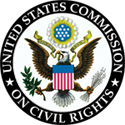U.S. Supreme Court Rules in Favor of School Choice!

Today, in a long-awaited ruling on state Blaine Amendments, the U.S. Supreme Court ruled in favor of three Montana mothers who wished to enroll their children in religious schools with the assistance of a scholarship.
Read More...
Advisory Committee to the U.S. Commission on Civil Rights Releases Report on Colorado’s Blaine Clauses

A newly released report entitled “The Colorado Constitution’s No Aid To Sectarian Institutions Clause and its Impact on Civil Rights,” examines the origins of the Colorado Constitution’s No Aid Clause (known as Blaine Amendments), and the historical and modern applications.
The report was authored by members of the Colorado Advisory Committee to the U.S. Civil Rights Commission. Independence Institute’s Research Director, David Kopel, serves on the committee as the Vice-Chair.
Nineteenth century Blaine clauses banned public dollars from supporting sectarian-religious organizations which society viewed unfavorably, including Catholicism, Judaism, Mormonism, and Islam. Mainstream Protestant denominations were not considered to be sectarian.
The report details how the clause impacts civil rights in education, students with disabilities, higher education scholarships, and lists eight state-funded voucher-like programs that provide funding for programs at religious institutions.
Read More...
What Might Gorsuch Mean for Education?
President Trump has always been a wild card. It’s been very hard to say what he would or would not do—and in some ways it still is. But one of the central promises of his campaign was that he would nominate a great justice to replace Justice Antonin Scalia, who died tragically almost exactly year ago. To his credit, he has kept that promise by selecting Neil Gorsuch to fill Scalia’s empty seat. Education is still a bit of a question mark when it comes to the Trump administration. There have been all sorts of rumors and ideas floating around, but none has yet coalesced into a cohesive vision of how the federal government will interact with K-12 education. The crystal ball is further clouded by Betsy DeVos’s sharply contested nomination to head the U.S. Department of Education. It’s been sad to watch the conversation about DeVos, a lifelong philanthropist who has donated her time and money to increasing opportunities for those who need them, devolve into a shouting match that sidesteps reality and avoids real conversations about what DeVos should or shouldn’t do should she be confirmed. As Rich Lowry wrote for National Review, “We now know that working […]
Read More...
Big Win for Florida Students Kicks Off National School Choice Week 2017
It’s National School Choice Week again, my friends. This year’s celebration of educational opportunity is the biggest yet with more than 21,000 events attended by more than six million people across all 50 states. You can help us celebrate the occasion by stopping by the Colorado Capitol on Thursday, January 26, at 11:30 AM. If you live further south, there will also be a rally at the Colorado Springs City Hall at 9 AM on January 24. If neither of those options works for you, you can take a look at this interactive map to find another event in your area. No matter where you live, you should plan to get to a NCSW rally. There will be lots and lots of fuzzy yellow scarves as usual, and you’ll get to go home feeling pretty fuzzy yourself for having helped promote opportunity for all students. There’s plenty to celebrate during National School Choice Week 2017, like the fact that educational choice just keeps on expanding all across the United States. There are more than 2.5 million students enrolled in more than 6,500 public charter schools in more than 40 states. Additionally, there are 61 private school choice programs of various types spread […]
Read More...
New Dougco Ruling Stretches Logic, Hampers Choice
Yesterday, we celebrated the continuing success of public school choice by taking a look at some very encouraging findings in Colorado’s public charter school sector. I mentioned in the post that despite the rapid expansion of charter schools, demand is far outstripping supply when it comes to school choice—there are thousands of students on charter waiting lists and in lottery pools across the state. Yet even as I type this, between 10,000 and 15,000 seats sit empty in Colorado private schools. Each of those seats represents the opportunity to change a student’s life, but that doesn’t stop choice opponents from fighting tooth and nail to shut down any attempt to open the door to those opportunities. Sadly, these opponents scored another win against choice in Douglas County last week when 2nd Judicial District Court Chief Judge Michael Martinez—the very same judge who blocked the original Dougco voucher program in 2011—ruled that the district’s new local voucher program, which excludes faith-based schools, is still bound by the Colorado Supreme Court’s sweeping 2015 ruling under Colorado’s Blaine Amendment.
Read More...
Arizona Judges Strike Down Opportunity for Disabled, Foster Kids
Yesterday I mentioned that Florida is seeking to get rid of the bigoted Blaine Amendment, which some opponents of school choice use to take away opportunities from kids in need. But even in states that don’t have the Blaine Amendment, judges can use parts of the state constitution to strike down school choice programs. Witness yesterday’s decision from a court in another state: It is unconstitutional for the state to give parents money to help pay private-school tuition for their disabled or foster children, the Arizona Court of Appeals decided Thursday. Kids with disabilities and foster kids? That’s harsh. The 2006 law violates the state Constitution’s ban on using public money to aid private schools, the panel said. “The tuition payments aid parents, not schools,” said attorney Tim Keller, who argued to save the tuition payments, known as vouchers. “The intent of the legislation was to help families get their disadvantaged children the best education available.” This news is sad to see. But at least the good people at the Institute for Justice are going to challenge this case to the Arizona Supreme Court.
Read More...
Florida Looks to Lead the Way in Ending Blaine's Education Bigotry
According to the Washington Post, voters in Florida have a chance to remove the bigoted Blaine Amendment from their state constitution. The Post points out that the Blaine Amendment has been used in different states to discriminate against certain kinds of educational opportunities: Patricia Levesque, the commission member who pushed to add the measure, said she acted because a 2004 appeals court decision cited the Blaine Amendment while striking down then-Gov. Jeb Bush’s effort to allow students in failing schools to enroll in parochial and other private schools at public expense. Independence Institute senior fellow Krista Kafer, while she still worked at the Heritage Foundation in 2003, noted the background that put the offensive Blaine Amendments in 37 states (including Colorado): Vestiges of an anti-Catholic movement, these provisions are named after Congressman James Blaine of Maine for his efforts to add such language to the U.S. Constitution. In the mid-nineteenth century, anti-Catholic and anti-immigrant bigotry found expression in American institutions and politics. The emerging public schools were commonly Protestant in character, requiring, for example, the reading of the Protestant King James Version of the Bible in classrooms. Efforts to secure funding for Catholic schools were resisted. After the Civil War, […]
Read More...



